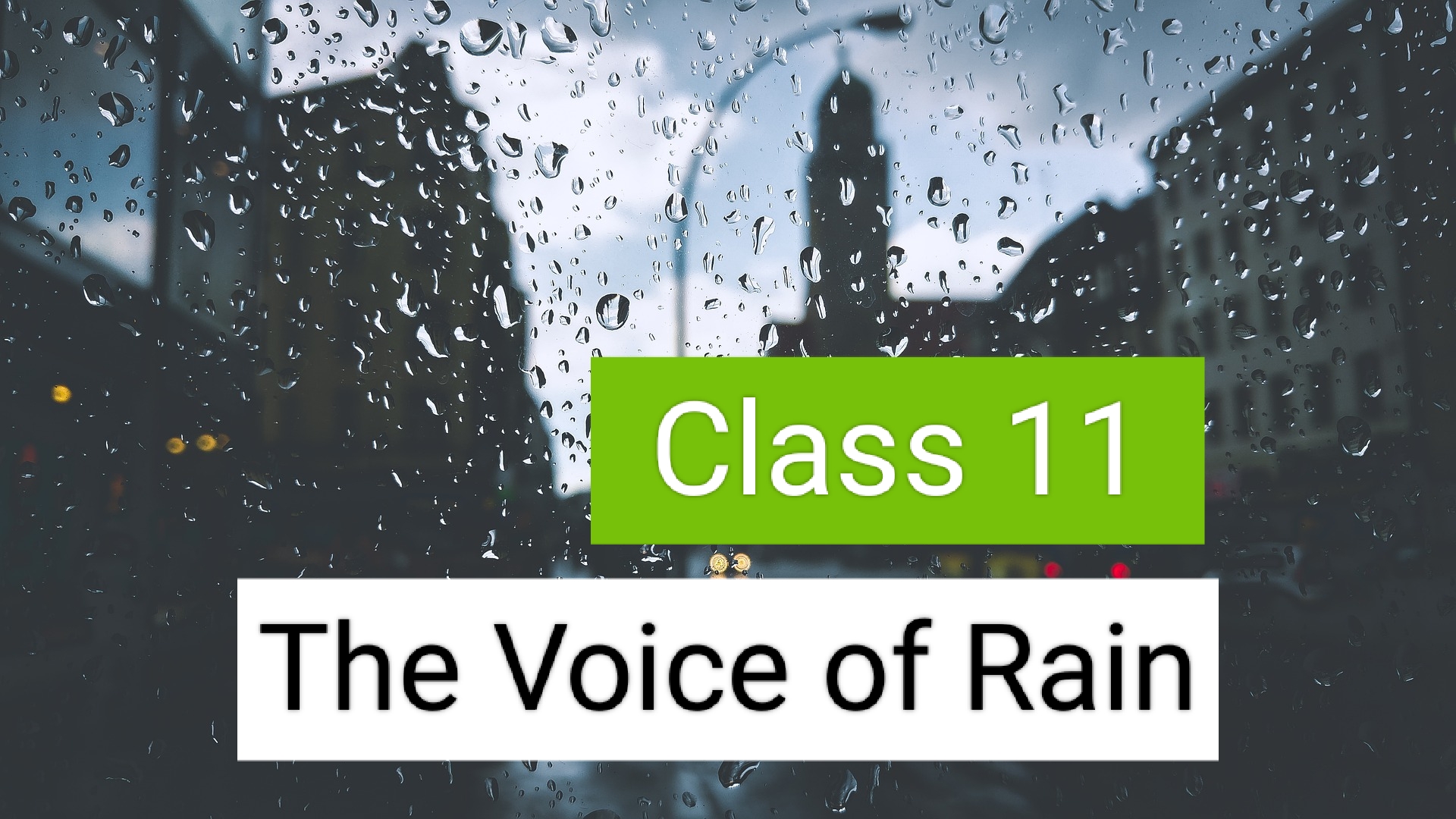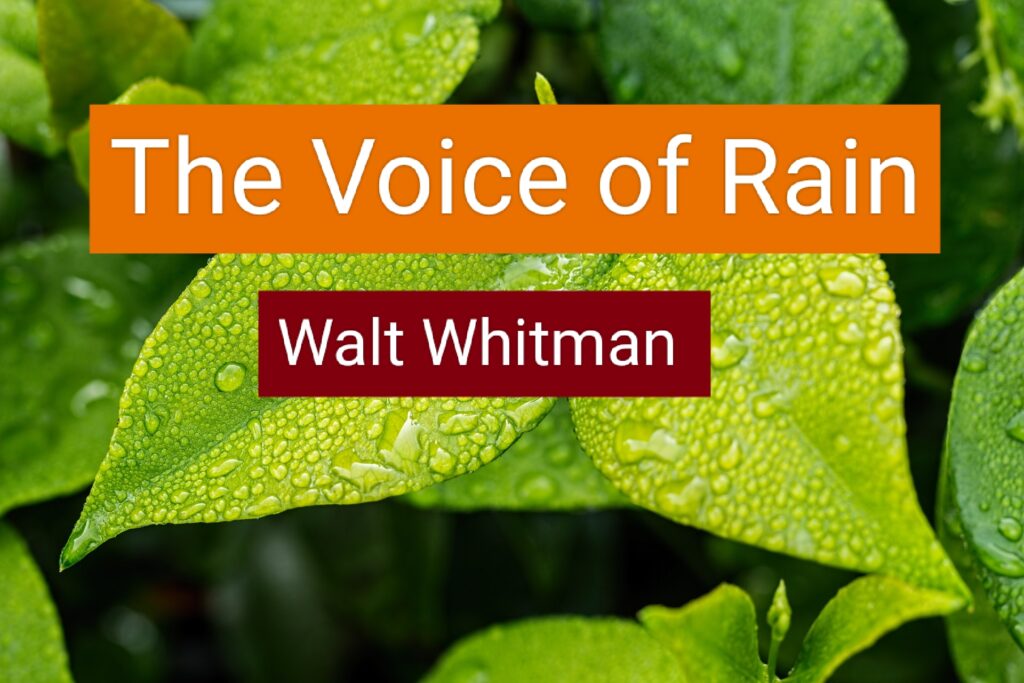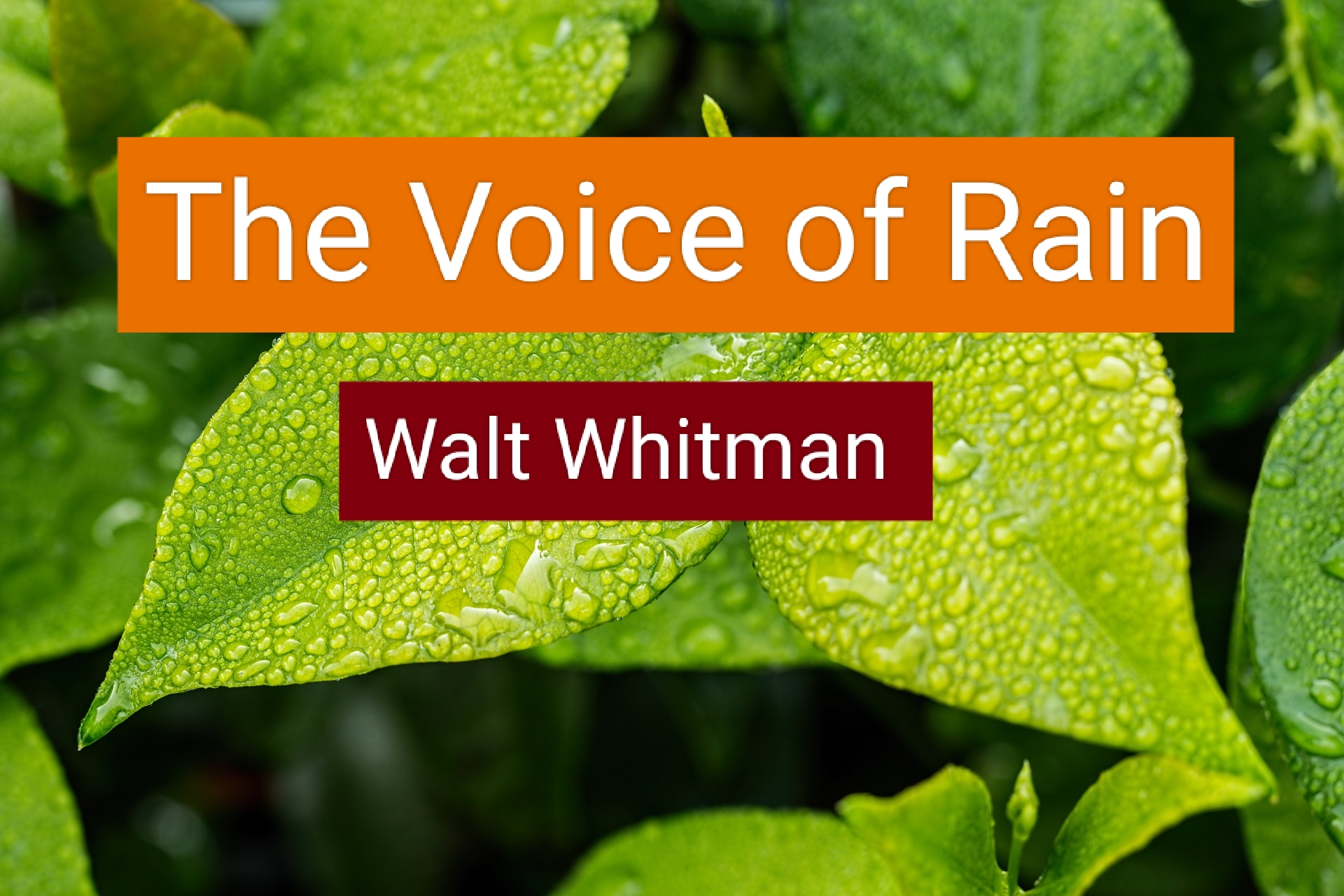The Voice of The Rain by Walt Whitman
About the Poet
Walt Whitman (1819-1892) was an American poet, essayist, and journalist, widely considered one of the most influential American poets of the 19th century. He was born in West Hills, Long Island, New York, and grew up in Brooklyn. Whitman began his career as a journalist and later worked as a teacher, printer, and government clerk.
Whitman’s most famous work is the collection of poems called “Leaves of Grass,” which he started writing in 1855 and continued to revise and expand throughout his life. The first edition contained just 12 poems, but by the time of his death, it had grown to over 400 poems. “Leaves of Grass” is known for its celebration of individuality, democracy, and the beauty of the natural world. It is also notable for its free verse style, which was a departure from the traditional poetry of the time.
Whitman was known for his unconventional personal life and his open-mindedness about sexuality. He lived for many years with his brother and later with a man named Peter Doyle, who may have been his romantic partner. Some of his poems contain homoerotic themes, which were controversial at the time.
Whitman’s work had a profound influence on later poets, including T.S. Eliot, Allen Ginsberg, and Langston Hughes. He died in Camden, New Jersey, in 1892, and his legacy continues to inspire readers and writers today.

The Voice of The Rain Summary
The poet enquired as to who was behind the gentle rain. Interestingly, the shower provided him with a response. He was informed that it was the poem of the soil by the voice of the rain. It is eternal and unending. It is an object that one cannot touch. It is a product of both the deep sea and the land. It ascends to the heavens. There, it takes on a new form and undergoes a complete transformation. Yet, nothing has changed. Then it descends to wash the world’s thin layers of dry, thirsty dust. The seeds that are concealed and unborn beneath the layer of earth are given a second chance at life by the rain. Rain falls continuously, both throughout the day and at night. Rain restores life to the source of its own beginning and makes it pure and lovely. The rain makes music. The origin of this song can be found there. Whether or not it is paid attention to, it continues to wander around. The song correctly and lovingly returns again.
Read Also : “The Laburnum Top” Questions & Answers, Class XI, CBSE
The Voice of the Rain Short Answer Type Questions
1. Why is referred to as a “translation” by the poet?
Ans. The rain’s voice is distinct from ours and naturally mysterious. Therefore, the rain’s response is translated into English by the poet alone who understands it.
2. What is the cloud’s life cycle?
Ans. The only thing that makes up clouds is water vapour. Land and sea water become vaporized when the sun is too hot. The vapors of water rise to the sky like dark clouds and float there. Finally, rain brings the clouds back to where they came from.
3. What question does the poet ask for the rain? What reply does he get?
Ans. The poet inquires about the rain’s identity. The rain replies in a mysterious voice that she is the song of Earth.
4. Where did the cloud originate? How does they go upward into heaven?
Ans. The sea, rivers, and other bodies of water are places where the cloud is born. Being lighter than air, water vapours rise to the sky and form strange clouds. However, it is essentially the same old water.
5. What are the purposes of rain or clouds?
Ans. Everything on Earth is soaked by the rain, which also removes layers of dust and alleviates dryness and gives seeds new life. It does this by cleaning, purifying, and beautifying everything on Earth.

6. What is the central idea of the poem “The Voice of the Rain”?
Ans. The poet wants to convey the birth, development, transformation, and, ultimately, the benefits of rain. Water eventually returns to Earth in the form of water after transforming into clouds, wandering through the sky, and taking on bizarre forms. It bathes, cleanses, and beautifies everything on Earth. Rain performs its duties without regard to recognition. This should serve as a warning to humans and motivate them to protect the planet.
7.Latent seeds get a life by rain. Explain.
Ans:The seeds lying on Earth require water to germinate and take shape. When it rains, the seeds start germinating and change into the form of saplings.In this way, the seeds which would have dried up or get wasted get a new lease of life by rain.
Read Also : Discovering Tut: The Saga Continues Questions & Answers
8. Why does the poet use the phrase ‘reck’d or unreck’d’?
Ans:The words have been poetically drafted. Reck’d and unreck’d stand for reckoned and unreckoned. The words literally mean cared and uncared for respectively. The poet says these words to emphasise the fact that when it falls on the Earth, we sometimes take notice of it or sometimes completely ignore it. But even if it is left uncared for, it completes its destiny and returns to absorbed where it started from.
9. Justify the title of “The Voice of the Rain.”
Ans: The benefits of rain and their enduring process are the main themes of the entire poem. The poet has attempted to convey the significance of rain for Earth, for plants, and for people via the words of the rain. The entire poem is about the rain communicating to the poet as the poet translates what the rain is saying through the rain’s native language (the sounds it produces when it falls). The title is therefore appropriate.
10. The entire poem is written in a conversational style. who are the speaker and the listener? Is there a benefit to this approach?
Ans: The poet and the voice of the rain, who responds to the poet’s inquiries, are the two participants. The benefit of using this technique is that it keeps the poet’s thoughts and ideas consistent while also making clear what he wants to say.


